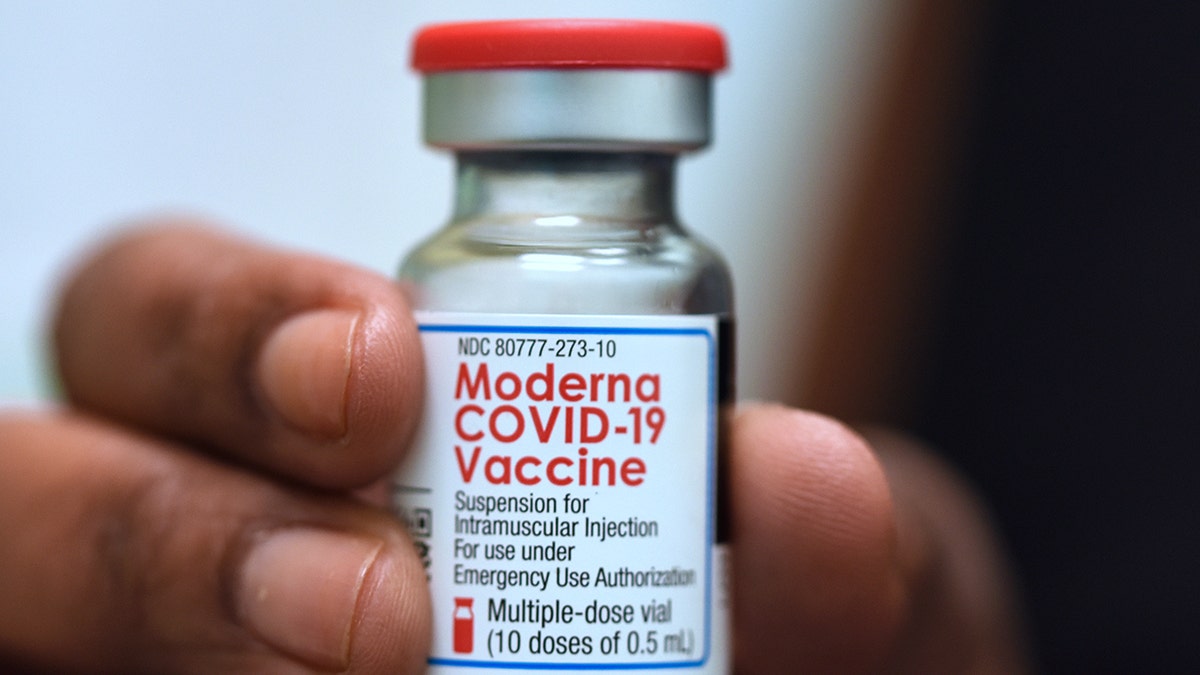Fox News Flash top headlines for October 25
Fox News Flash top headlines are here. Check out what's clicking on Foxnews.com.
Moderna said Monday that a low dose of its COVID-19 vaccine is safe and appears to work in 6- to 11-year-olds, as the manufacturer joins its rival Pfizer in moving toward expanding shots to children.
Pfizer's kid-size vaccine doses are closer to widespread use. They are undergoing evaluation by the Food and Drug Administration for youngsters in nearly the same age group, 5 to 11, and could be available by early November. The company's vaccine already is authorized for anyone 12 or older.
Moderna hasn't yet gotten the go-ahead to offer its vaccine to teens but is studying lower doses in younger children while it waits.

Clinical Research Coordinator Jeanette DeLeon takes blood samples from 16-year-old Brooke Stroud, a patient in a Moderna COVID-19 vaccine clinical trial for adolescents being conducted by Accel Research Sites with Nona Pediatric Center in Orlando, Florida. ( Paul Hennessy/SOPA Images/LightRocket via Getty Images)
CHINA TO GIVE COVID VACCINE TO CHILDREN AS YOUNG AS 3
Researchers tested two shots for the 6- to 11-year-olds, given a month apart, that each contained half the dose given to adults. Preliminary results showed vaccinated children developed virus-fighting antibodies similar to levels that young adults produce after full-strength shots, Moderna said in a news release.
The study involved 4,753 children ages 6 to 11 who got either the vaccine or dummy shots. Moderna said that like adults, the vaccinated youngsters had temporary side effects, including fatigue, headache, fever and injection site pain.
The study was too small to spot any extremely rare side effects, such as heart inflammation that sometimes occurs after either the Moderna or Pfizer vaccines, mostly among young men.

Dr. Salma Elfaki holds a vial of Moderna COVID-19 vaccine at a Moderna clinical trial for adolescents being conducted by Accel Research Sites with Nona Pediatric Center in Orlando, Florida. (Paul Hennessy/SOPA Images/LightRocket via Getty Images)
Moderna released no further details and hasn't submitted its data to a scientific journal but said it plans to share the interim results with the FDA and global regulators soon. The study is still going on, and the company cannot calculate the vaccine's effectiveness in actually preventing infections in children unless there are sufficient COVID-19 cases to compare rates between vaccinated and unvaccinated participants.
The FDA hasn’t yet ruled on the company’s application to expand its vaccinations to 12- to 17-year-olds, although some countries have cleared Moderna’s shots for adolescents.
CLICK HERE TO GET THE FOX NEWS APP
But the U.S. is expected to begin vaccinating children under 12 sometime next month, if the FDA clears low doses of the Pfizer vaccine for 5- to 11-year-olds. Pfizer reported last week that its kid-size doses proved nearly 91% effective at preventing symptomatic COVID-19 in that age group, even as the extra-contagious delta variant was spreading widely.
FDA's advisers will weigh Pfizer's evidence in a public meeting Tuesday. If the agency authorizes Pfizer's kid shots, the Centers for Disease Control and Prevention the following week is set to recommend who should receive them.




















